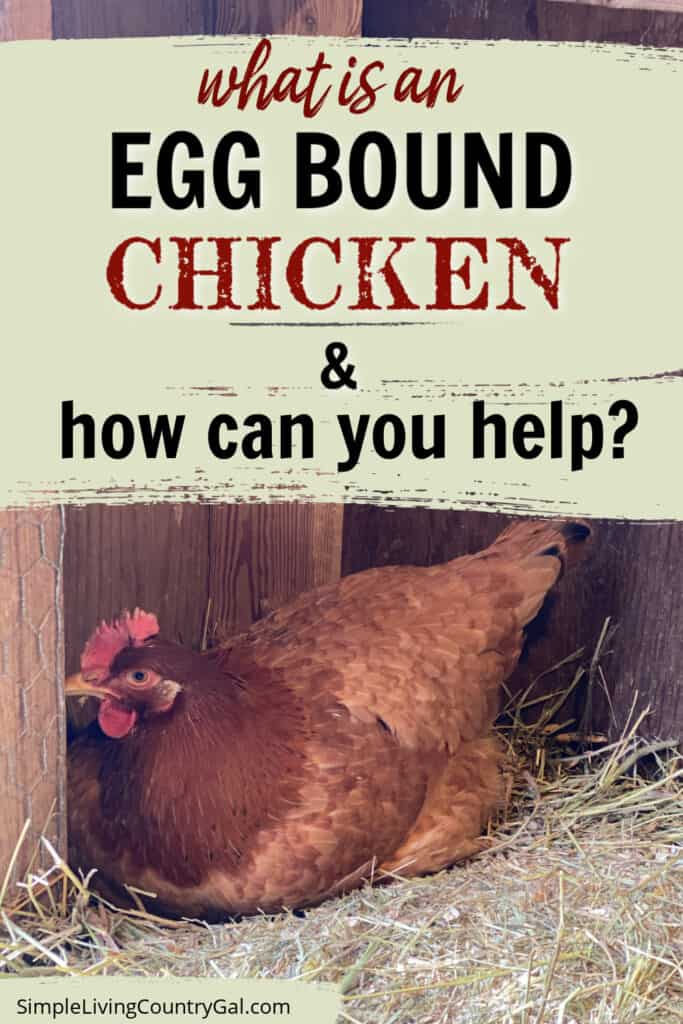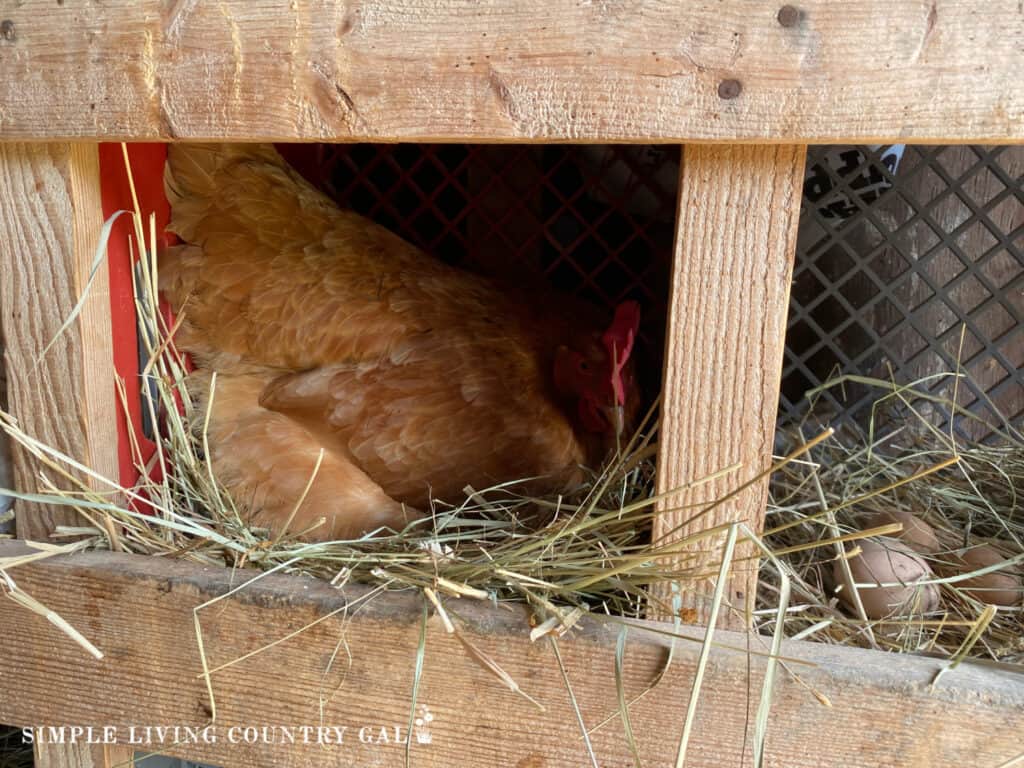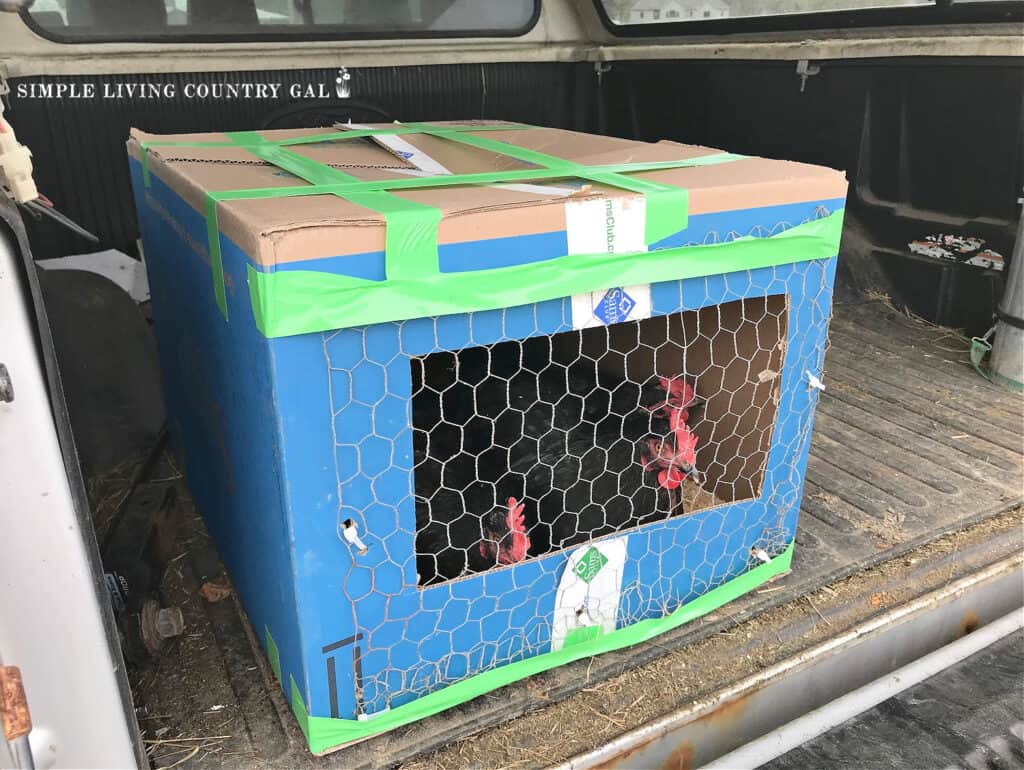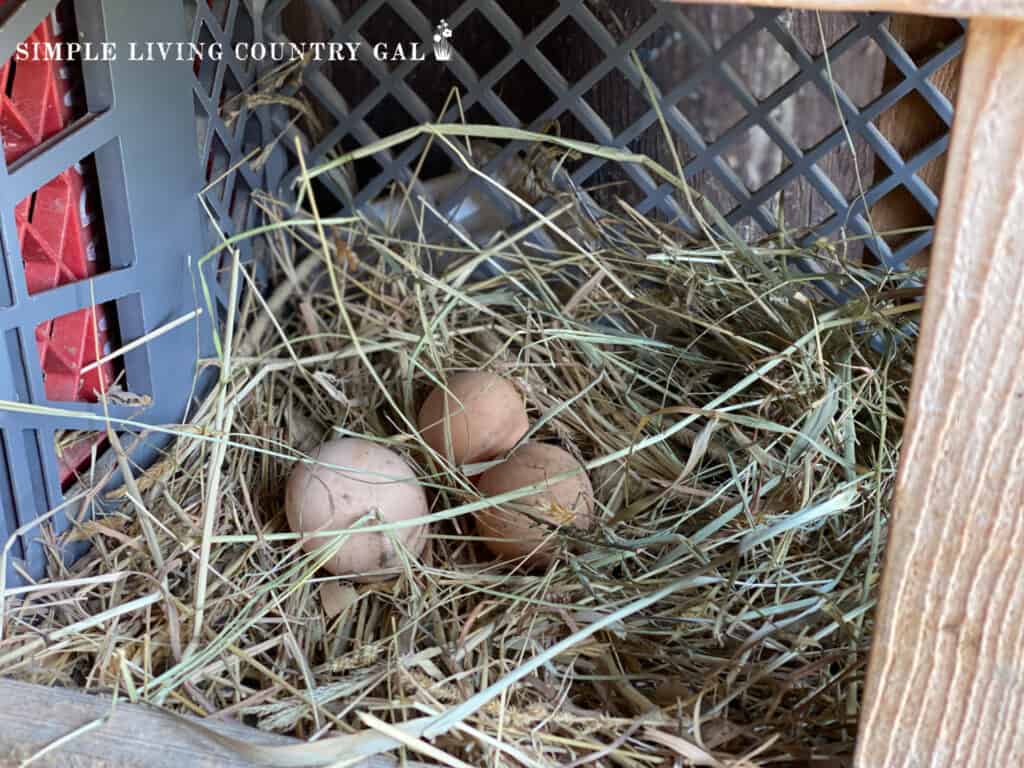Egg bound chicken
Nothing is quite as upsetting as when one of our animals is sick. This article will walk you through the symptoms of an egg bound chicken so you can help her with support and care when needed.
Watch for issues when raising chickens so you quickly intervene or call for assistance when needed.

As a homesteader, backyard chickens are a common staple. Their self-sufficiency makes them a top pick for many folks looking to live a more sustainable lifestyle. Even though chickens are pretty self-reliant, there are a few issues to be aware of, so you catch any clues if they should come up.
One common issue is an egg-bound chicken. If you suspect your hen is egg-bound, it can be stressful for you and your hen. With some useful tips, you can help and maybe even save your bird’s life. We’ll talk about a few of the symptoms to look for and the steps to take when caring for an egg-bound chicken.
What does egg bound mean?
An egg-bound hen is a serious condition that occurs when a hen is unable to pass an egg because it is stuck inside. What happens is the egg gets caught in the reproductive tract, causing a blockage, which then causes a buildup of fluid or mucus.
If it is left untreated, the condition can be fatal for the hen and that is why It is essential to act promptly to prevent the situation from worsening.

What causes a chicken to become egg bound?
There are a few factors that can contribute to a hen becoming egg bound.
- Too much protein in a chicken’s diet
- A poor diet overall
- Stress in the flock
- Continuous laying year round
- Overweight
- Young chickens with large eggs
- Worms or parasites
Symptoms of an Egg Bound Chicken
There are a few symptoms to look for that will alert you that there may be an issue with an egg being stuck in your hen. Some of these signs are subtle clues, and knowing your chickens will help them to be more obvious. It is important to know your hens when they are healthy so you can more easily recognize when there is a problem.
- A noticeable change in the chicken’s behavior. Egg-bound chickens may seem lethargic and unable to move around much.
- They may also be hunched over.
- They may not be eating or drinking water.
- They may show signs of straining.
- They may be off in the corner of the coop or run with little interest in what is going on with the rest of the flock.
- The most significant symptom is a hunched back with the tail pointing down.
- Egg-bound chickens may experience abdominal swelling and expulsion of mucus or blood from the vent while straining.
If you observe any of these symptoms, acting immediately to ease your hen’s distress is crucial.
What to do if your chicken is egg bound
If you suspect that there’s an egg-bound chicken in your flock, there are a few things you can do to help your hen. Please do not leave your hen alone to resolve the issue on her own, if left untreated, your chicken may not survive. If you are not comfortable working on your hen, you can call your vet for advice or treatment if they are willing.
In most cases, you have about 48 hours to help before your chicken becomes critical or dies. This is not to scare you, just to let you know time is of the essence.
Give a Warm Bath
The only way to remedy egg binding is to get the egg out of her immediately. The best option is to give her a bath and massage her to help pass the egg.
Supplies needed:
- Wash tub large enough to hold your hen
- Warm water
- Epsom Salts
- 1-2 towels
Step #1. Place your chicken in the warm bath, being sure her vent is submerged.
Step #2. Keep her in the bath for 20 minutes. She should be calm and willing but be prepared for a struggle just in case. Keep both hands on each side of her as this will help her to feel more secure.
Step #3. While she is in the water, gently rub her abdomen. Be slow and gentle, so you are not causing additional stress.
Step #4. After 20 minutes, remove her from the water and gently blot her dry with a towel. You can also use a hair dryer on a low setting to dry her off more quickly.
Step #5. Lubricate her vent by rubbing olive oil or vegetable oil on with your finger.
Step #6. Put her into a dark and quiet area and give her some time to pass the egg. We like to use a dog crate for our hens and find this works well. If you do not have a crate, you can make one with a large box and some chicken wire.

Step #7. If she does not pass her egg, soak her again for another 20 minutes. Repeat the process until she passes her egg.
If there is no improvement, it may be best to contact a vet. Yes, it’s true many vets will not treat poultry, but most will help you over the phone. If not, you can try calling a neighbor who has chickens themselves to see if they have any advice to give.
Books For Chicken Care
- The Chicken Health Handbook (2nd Edition)
- Raising Chickens for Beginners
- Storey’s Guide to Raising Chickens, 4th Edition
How to prevent chickens from becoming egg bound
Prevention is always better than having to deal with this stressful situation. Thee tips will help to prevent your chickens from getting egg-bound.
- Ensure that your hens have access to calcium-rich feed, such as oyster shells, which will help strengthen the reproductive system.
- Inspect your chickens regularly for worms or parasites.
- Watch for hen pecking in your flock. Provide toys and distractions to keep a more tranquil coop.
- Make sure your chickens are hydrated and receive a balanced diet.
- It’s also essential to monitor and track your chicken’s laying habits. This will help you to notice when there is a drop in eggs alerting you that there “may” be an issue.

Egg bound hens are not a common occurrence, and in all my years of having chickens, I have never experienced one myself. If you are feeding your flock good grains and you have plenty of room in the coop and the run, you will most likely be fine as well. However, I think it is wise to know about the issue so if it does occur, you are better prepared to give your hen the help she needs.
Bookmark this article so you have a plan just in case one of your hens becomes egg bound.
